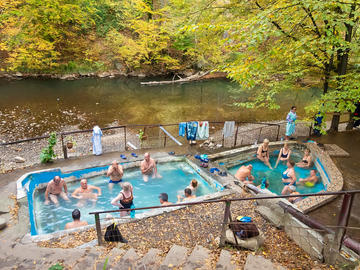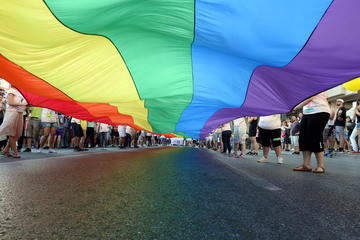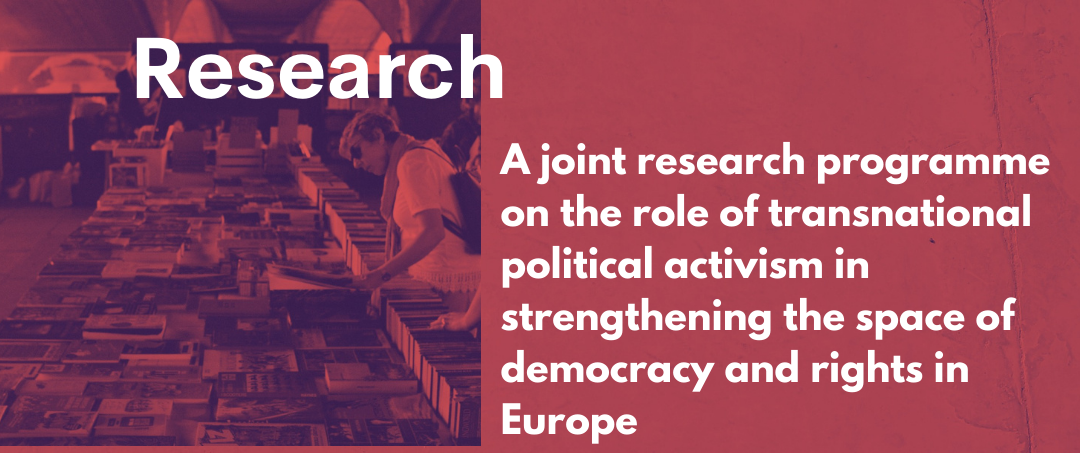Entering the Serbian digital prison: an interview with Jelena Sesar
A series of reports by Amnesty International exposes Serbia’s "Digital Prison", a widespread surveillance campaign targeting journalists and civil society. In this interview Jelena Sesar, researcher at AI, takes us inside this prison
More News
INVESTIGATION Appetite for wood: disappearing forests of Albania
Tropoja | Marta Abbà | 15/4/2025Multimedia
 Austro-Hungarian spas in Romania
Austro-Hungarian spas in RomaniaBăile Herculane is among the oldest and most popular spas in Romania. It reached the peak of its splendour in the second half of the 19th century, when the region was part of the Austro-H...
 Azerbaijanis in Georgia celebrate Novruz with a surreal twist
Azerbaijanis in Georgia celebrate Novruz with a surreal twistIn Georgia, the Azerbaijani community celebrates Novruz like in Azerbaijan, but in the village of Sartichala-Mughanlo, the celebration takes a unique turn: costumes, fires and a fund...
 Easter in Tbilisi: a night of light, faith, and tradition
Easter in Tbilisi: a night of light, faith, and traditionAs midnight arrived in Tbilisi, Easter awoke in a glow of candles and prayer. This year, for a change, Georgian Orthodox and Armenian Apostolic Easter occurred on the same day, April 20,...
A Europe with less and less snow
In the Old Continent, snow is becoming increasingly scarce, with a marked decline especially in Central and Southeastern Europe. The consequences for the environment, economy, and water resources are far from negligible
Romania, the rebirth of a spa town
After decades of severe decline, the historical spa town of Băile Herculane is gradually flourishing again. The credit goes to the efforts by a group of young people who mobilised to save the heritage and reclaim the spaces, and to EU funds
Greece, historic legalisation of same-sex marriages
Greece has made history by becoming the first Orthodox-majority country to legalise same-sex marriage. A step that comes after a long journey, marked by strong opposition from the Church and conservative forces in the country
The Media Freedom Resource Centre is an online platform enabling quick and easy access for journalists, media experts, policy makers and the broad public to an ever-growing collection of resources on media freedom in Europe. Developed by OBC and the European Centre for Press and Media Fredoom
Research
In 30 of Europe's biggest cities, streets named after women make up only 9 per cent of the streets dedicated to individuals. The imbalance has started to narrow in some places, but progress is too slow: at this rate, it would take centuries to really close the gap.
Publication
by Fazila Mat, Luisa Chiodi and Oliver Schmidtke
Social Sciences






















 To Top
To Top